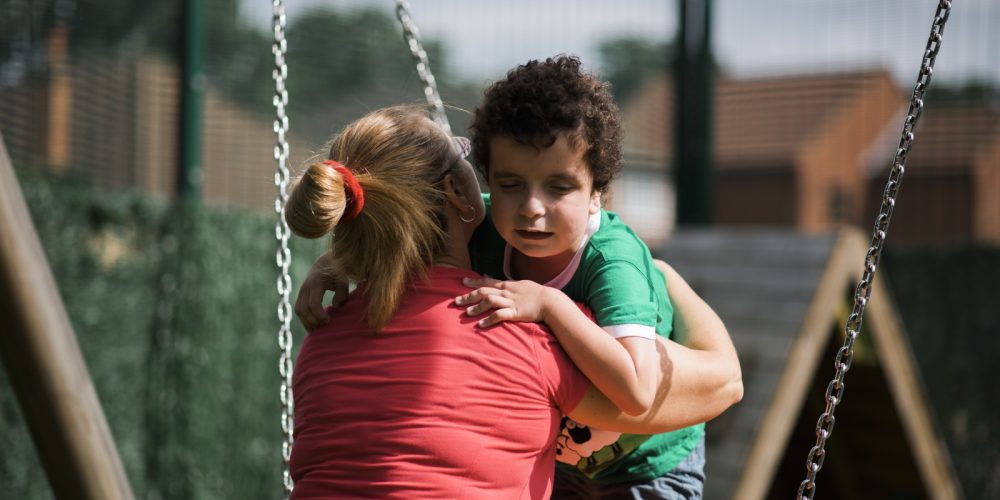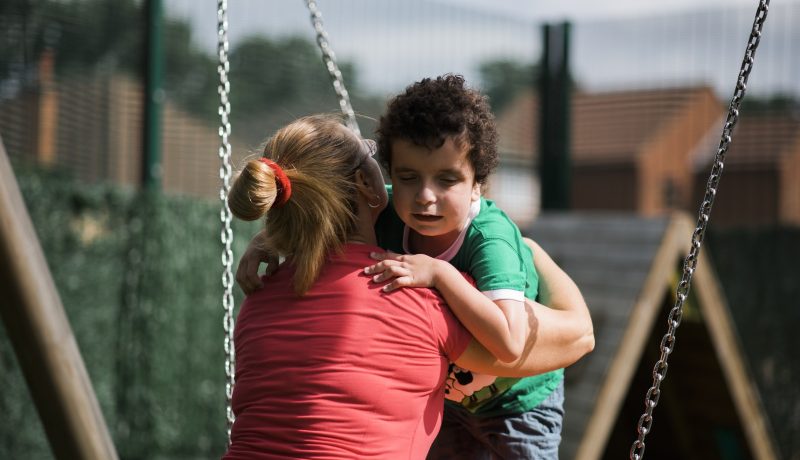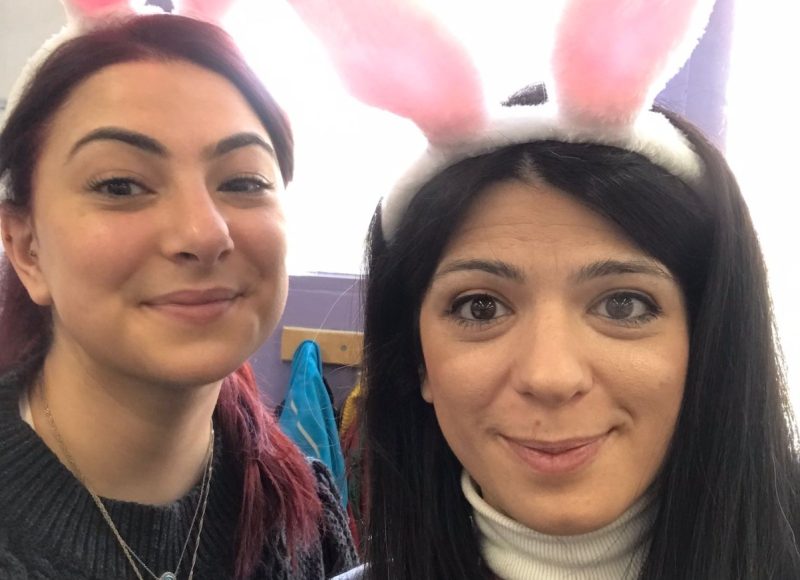
A family support worker helps families of children with learning disabilities, giving them practical help, advice and emotional support.
Many families of a child with learning disabilities find it hard to get the information they need or are too overwhelmed to find the right support.
For some parents, English is not their first language. Yet they often have stacks of paperwork to read and information to understand.
This is where family support workers come in.
Sahara Al-Saad, family worker for Learning Disability Network, London says that for many parents “It’s a bit overwhelming and they need guidance… especially if they’re at the beginning of their Special Educational Needs journey.”
She describes the role as trying to give parents the tools to help themselves – to get the best outcome for their children and the family.
Lucia Balint, who works as a family support worker for Kids Can Achieve in Harrow, says that many parents need emotional, as well as practical support. She says that many people “need direction” about what to do.
Anne Hopewell, who also works in the family support team at Kids Can Achieve, agrees that many parents “do not have the capacity to deal with what’s in front of them.”
The Government does not fund family support workers at KCA or LDN London. Our charities need to raise money for these vital services. If you can, please donate and help us support families in need:
Donate to KCA
Donate to LDN London


The family support team respond to all the people who contact them. Some families are referred by professionals (such as doctors or social workers), while other families find out about family support services on social media or through a parent group and send them a message.
Sahara says that she usually first does an assessment. She speaks to a family to find out more about their situation and what kind of support they need, whether that is about housing problems, schools, or a financial issue.
After that first appointment she will prioritise some issues and solve them. Families often contact the team again if they need more support, Sahara says.
The role can be ad hoc, with families sometimes contacting her again after a year. The job requires you to be flexible and to respond to people’s needs.
Sahara also works with the family support team at Learning Disability Network. Another member of the team, Alexandra, works directly with children and provides therapies. Sahara supports her where necessary with practical assistance, such as translating where possible, and helps the families.
Compassion and empathy – to care about and understand the families you support
Determination – to make a difference and get through the (occasional) mountains of paperwork!
An understanding of the schools and benefits systems – to help people understand these
Being a good listener and source of emotional support
Ability to help and empower others – supporting people and giving them the confidence and skills to support their child
Working together – having the people skills to work well with families, other support workers and other organisations
Problem solving
Being assertive and sometimes fearless – trying to understand when to push families to do more for themselves or when to challenge people to help clients
Time management – to manage a busy role, deadlines and appointments

The families team says you get an amazing feeling when you successfully help a family.
Anne says that it’s great to be on the parents’ side, especially when the system can seem like it is against them. “It’s really satisfying – we’re just not another barrier, we’re trying to break down barriers.”
Anne has been to some appointments with parents where the doctors seemed more helpful and responsive to the family because she was there, she says. “You get their voice heard more easily.”
She adds that you also get a great feeling when you see and hear the impact that the work makes: “When parents say they don’t know where they would have been without you.”
Sahara agrees that the role makes a genuine difference.
Sahara says she became a family support worker because she wanted to help end inequality for children with special educational needs.
She says that there’s a lot of “unmet need” and not enough support for parents. A lot of services don’t have the time or resources to help people, she says.
The team said that the most important thing is your attitude. While there are courses that would be useful to have studied, “the knowledge you can build on the job is more important”, the team said.
Anne and Lucia both have a background in social work. A similar background or knowledge of Psychology and Development Psychology would be useful, but not essential.
It is important however to have good writing, reading and English language skills.
As well, a good understanding of learning disabilities is also important, if you are working for an organisation that supports children with learning disabilities.
If you have a child with a learning disability and need support, please contact family.service@kidscanachieve.co.uk
Find out more about the work of Kids Can Achieve: https://kidscanachieve.co.uk/